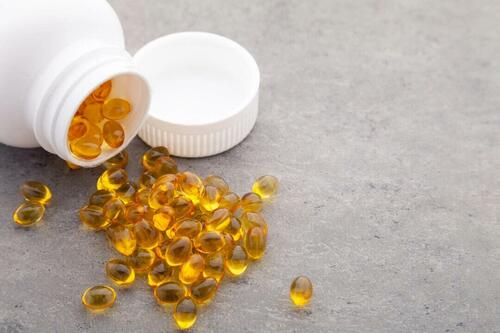Authored by George Citroner via The Epoch Times (emphasis ours),
A new clinical trial has found that high doses of vitamin D may significantly slow the progression of a neurological disorder known as clinically isolated syndrome (CIS). It is a condition that may look like multiple sclerosis (MS) and may precede MS.

Both MS and CIS are caused by inflammation and damage to the central nervous system, specifically the brain and spinal cord. In MS, the body’s immune system mistakenly attacks the myelin sheath, the protective layer that surrounds nerve fibers, leading to communication issues between the brain and the rest of the body. Currently, there is no cure for either condition.
Vitamin D’s Effect on CIS
The research, conducted across 36 MS centers in France, aimed to evaluate the effects of vitamin D supplementation on patients experiencing early signs of the disease.
Recently published in JAMA Network, the double-blind, randomized, placebo-controlled study enrolled 303 participants aged 18 to 55 with low vitamin D and MRI results typical of CIS, a condition that often precedes MS.
CIS is characterized by a single episode of neurological symptoms lasting at least 24 hours. These can include vision problems, numbness/tingling, weakness, coordination issues, and bladder/bowel problems.
Patients were treated with either 100,000 international units of vitamin D or a placebo every two weeks for a period of 24 months. The primary outcome measured was the occurrence of disease activity, defined as either a relapse of symptoms or new nerve damage shown on an MRI scan.
The findings revealed that only 60.3 percent of participants receiving vitamin D had symptom relapses or further nerve lesions on MRI, compared to 74.1 percent of those receiving the placebo.
Also, the average time between relapses or further lesions were detected was longer for those taking vitamin D—432 days compared to 224 days for those on placebo.
Researchers primarily observed a reduction in detected nerve lesions. There was not a significant difference in the rate of relapses between the two groups, meaning that vitamin D did not prevent the return of symptoms.
Click here to purchase Vitamin K2/D3 on its own, or buy Ultimate Omega 3 and receive a bottle of K2/D3 for free.

These results make high-dose vitamin D a candidate for further studies evaluating add-on therapy in the therapeutic strategy for managing MS, noted the study authors.
Vitamin D exerts its effects primarily by calming down the immune system. It affects immune cells’ activity and reduces inflammation in the central nervous system, potentially promoting neuroprotection and regrowth of myelin, fatty tissue that gets destroyed in CIS and MS.
The researchers noted that serious adverse events were low and comparable between both groups, with no significant side effects directly related to vitamin D treatment.
Potential for New Treatments
These findings hold promise for low-risk interventions that could potentially alter the course of the disease, Dr. Patricia K. Coyle, director of the MS Comprehensive Care Center at Stony Brook Medicine, told The Epoch Times.
“This is a study that looked at high dose oral vitamin D therapy in first attack, very early relapsing MS, and it showed a decrease in damage to the central nervous system,” she said. “This would set the stage for saying that potentially this might be a treatment, a valuable treatment.”
When you take vitamin D, “you’re going to absorb more calcium.” The concern is someone potentially developing an abnormally high level of calcium in the blood and the complications linked to that—such as kidney stones, gastrointestinal upset, and cardiac issues—which are all based on having a toxic, very high level of calcium that can be measure in the blood, she added.
“They didn’t really see any direct calcium related toxicity at all in the study, suggesting that this particular cohort, on the pulse high dose oral vitamin D, were tolerating it very well,” Coyle said. “This suggests that that was pretty safe.”
She emphasized this could especially benefit people who live in regions where access to conventional MS treatment is limited. Conventional MS drugs fight the disease by blocking inflammation or certain immune cells from causing further damage.
Ongoing Research Needed
While the trial’s primary outcome was achieved, Coyle said that the absence of a documented clinical benefit, despite MRI observations, is “a little bit odd.”
She suggested this may indicate the need for further research, explaining that if patients had less nerve lesions as detected by MRI, they should also have less relapses in neurological symptoms.
“This is not the end of the story,” Coyle added, pointing out that the current findings warrant additional studies to explore the full potential of high-dose vitamin D in MS management.
“But it’s giving a rationale for saying this high dose therapy may decrease damage to the central nervous system,” she said. “Which is something we always want with MS, so it certainly justifies doing further studies to try to document this benefit.”
Loading...